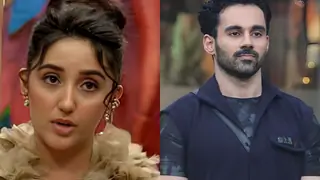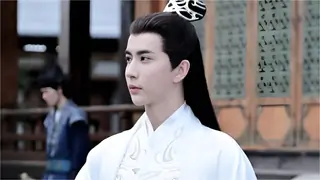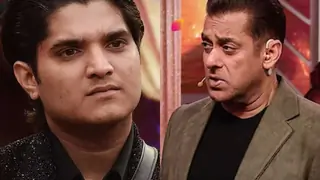Originally posted by: EkPahelii
Chances are, if you grew up in the early 2000’s in India, you grew up watching the K shows and Kyunki no doubt is the mother of ‘em all.
So, after it was first announced that it’s getting a reboot, I was not exactly thrilled. Because those who followed the show in the first season remember, by the end of it we simply wanted it to end ourselves, although not that randomly and haphazardly out of the blue one fine day but that ship sailed.
It didn’t exactly help that the disaster that was the KZK reboot just added to the dread of what unholy, unhinged monstrosity Ekta was about to unleash again.
Then the news of much of the original cast including Smriti Irani, Hiten Tejwani, Ketaki Dave and most surprisingly Amar Upadhyay, are about to reprise their roles comes out and things start looking up.
Sadly, it seems like the joke is on poor audience again, because this reboot despite having the brilliant cast that created magic onscreen all those years ago so far is a dud.
Ekta had such a fantastic opportunity to get Tulsi to play Baa 2.0, now the matriarch of the family and how she guides her own DILs through their own journeys with their kids and especially their DILs.But strangely, Mihir is supposed to have a new love interest, AGAIN, so down the drain goes everything.
It seems in a bid to make the original lead pair younger the makers have forgotten their own story. They have forgotten that Anupam and Kesar had 3 daughters, two teens and a preteen, who were briefly shown when Karan started living with the Kapadias for a while. And that by the time the show ended, season one had so many leaps that Karan and his generation were shown as parents to kids in their early 20s. So stands to reason, even if they were younger than Karan, those kids would have been adults if Karan’s stepdaughter who was born much, much later had also been married by the end of the show.
Mihir Tulsi were grandparents to ADULT grandchildren by the end of the show.
Not only is there a disconnect with the original show in a lot of ways but the new generation sucks too. There’s hardly any chemistry between the new generation’s lead pair - Vrinda and Angad; Pari comes across as a daughter of Trupti or at least Mohini more than any daughter raised by Tulsi and the cherry on top of the disaster that this cake is, that Mihir Virani, now a certified GRANDFATHER (despite not a single grandkid appearing onscreen so far in this season) is the object of obsession of a single, desperate, moronic woman AGAIN. A NEW ONE!Because god forbid Tulsi gets an opportunity to rest on her laurels and relax about women being obsessed with her husband even in this age - after Payal, Mandira, Meera, now it’s Noyna. And to make things worse and icky, this one’s got a cheerleader at home in the form of Gayatri who is trying too hard to live up to her real name made infamous by the KZK vamp Komolika but manages to come across as pathetic, disgusting and cheap more than anything else.
All in all, so far, I can’t imagine what prompted Ekta to make this show again as it’s killing the nostalgia and the charm of the show that at one point of time had the whole country mourning for the death of a fictional character and weeping alongside his pregnant wife who had just been widowed.
I couldn’t agree more with you, and honestly, this reboot feels more like a tragedy than entertainment. Kyunki Saas Bhi Kabhi Bahu Thi wasn’t just another TV serial, it was a phenomenon. It was the show that had families across the country glued to their screens, that made audiences cry for Tulsi as if she were someone they knew, and that gave them characters who, despite all the melodrama, felt like a part of their own lives. That kind of cultural impact doesn’t come around often, and when news of a reboot broke, there was at least some cautious hope that this legacy would be treated with the care and dignity it deserved.
The original show worked not just because of its writing but because of its powerhouse cast. Smriti Irani as Tulsi became the beating heart of the Virani family, embodying both strength and vulnerability in a way that connected instantly with audiences. Amar Upadhyay’s Mihir gave the character its strong foundation, and it was during his tenure that the unforgettable “Mihir death track” aired, an event so impactful that it stopped the nation in its tracks. Newspapers covered it, fans held protests, and the outcry was so overwhelming that the character had to be brought back. Later, when Ronit Roy stepped into Mihir’s shoes, he didn’t just continue the role, he carried it with such gravitas and emotional depth that he became inseparable from the character in the audience’s memory. Together, Amar and Ronit ensured that Mihir Virani would remain one of the most iconic figures in Indian television history but from my personal perspective though Amar laid foundation Ronit lived that character and I liked Ronit better than Amar.
And part of what made season one so impactful was the sheer caliber of its actors. Many of them trained theatre artists. Ketaki Dave (Daksha ben), Apara Mehta (Savita), Sudha Shivpuri (Baa) brought stagecraft, timing, and emotional range that gave their characters authenticity and depth. Their delivery, their silences, and even their exaggerated reactions carried a certain truth because they were rooted in performance craft. That theatre influence is one reason Kyunki felt larger than life yet relatable at the same time.
And the ensemble was nothing short of extraordinary. Hiten Tejwani and Gauri Pradhan as Karan and Nandini created one of television’s most unforgettable love stories. Sahil Virani by Sandeep Baswana, added sensitivity to the family dynamic, while Gautam (Sumeet Sachdev) carried the weight of Tulsi’s son through his turbulent arcs. Damini, brought to life by Riva Bubber and Ganga played by Shilpa Saklani was the emotional anchors of the family and DIL's who brought quiet resilience and warmth.
The antagonists, too, were iconic. Jaya Bhattacharya’s sharp and unforgettable Payal, and Mandira first played by Mandira Bedi with her deceptive charm and later by Achint Kaur, who gave the role a fierce, commanding edge remain etched in television history.
And coming to season 2 , What viewers have been given so far in the reboot feels like a pale shadow of that legacy. Instead of honoring the journey of these characters, the makers seem obsessed with dragging them back into the same repetitive cycles, old love triangles, tired rivalries, and endless twists that feel hollow now. Nostalgia can only carry a story forward for sometime and beyond that, it’s the heart and soul of the writing that has to sustain it, and sadly, that heart seems missing.
One of the biggest missed opportunities is Tulsi’s role. If there was ever a natural, powerful direction for this reboot, it was in showing Tulsi as the new Baa. The matriarch of the Virani family. Smriti Irani today has the maturity, presence, and emotional depth to carry that role beautifully. She could have guided the family with the same strength, compassion, and fire that once made her iconic in the first place. It would have been such a moving progression, Tulsi, who once fought tooth and nail to keep her family together, now leading a new generation of DIL's through their own battles. That would have been growth. That would have been honoring the legacy. Also they could have restarted S2 from Tulsi finding long lost son of Karan Nandini (Parth). S1 also had a character Sugandi who was introduced in last episode - adopted daughter of Tulsi and Mihir. Probably she would have been love interest of Parth. S2 could have stitched all those loose but as audience we dont even know at which point have makers rebooted this story.
Instead of continuation from S1, we got a reboot where Mihir is once again caught in the web of a new obsessive woman. After Payal, Mandira, and Meera now it’s Noyna. The irony is painful. This tired trope doesn’t just make Mihir look weak and repetitive, it also undermines the deep, soulful connection he once shared with Tulsi. For fans who had once wept with Tulsi at Mihir’s death, who had watched their love endure every imaginable storm, this storyline feels less like drama and more like betrayal. It’s as though the makers themselves don’t remember what made Tulsi and Mihir such a timeless couple in the first place.
And then there’s the issue of continuity. By the time Kyunki originally ended, Mihir and Tulsi were not just parents, they were grandparents to fully grown grandchildren. Viewers had watched generations of the Virani family grow, falter, and rise again. That was the beauty of the leaps the show took. It made them feel like they had truly lived with these characters across decades. To suddenly wipe all of that away, resetting the timeline as if none of it ever happened, feels careless and disconnected. If the makers really wanted to focus on fresh stories and younger love angles, they had so many options that would have made sense within the legacy. Karan’s children, Gautam/Sahil's family, or even a completely new branch of the Viranis. Tulsi and Mihir could have stood tall as the dignified elders, shaping and guiding, instead of being thrown back into recycled conflicts.
The new generation doesn’t help either. Vrinda and Angad lack the kind of spark that makes audiences root for them. Pari feels like a stranger in Tulsi’s household, as though she was raised by Trupti or Mandira rather than the Tulsi. The rest of the characters come across as flat sketches, exaggerated for drama rather than fleshed out as real people. It’s as if the makers are banking entirely on nostalgia but nostalgia without meaningful storytelling doesn’t last.
What made the original Kyunki resonate wasn’t just its over the top drama or shocking twists. It was the emotions at its core. It was the idea of family, the relationships that reflected households across the country, the heartbreaks and reconciliations that felt so deeply human even in the most dramatic of settings. That soul is missing now. This reboot doesn’t celebrate what these characters once meant to people, it reduces them to pawns in shallow, recycled story lines.
As an audience I had hoped for Tulsi and Mihir to evolve with grace, to be shown as dignified pillars of a family that has grown through decades of trials. Instead, they have been forced back into an endless loop of the same betrayals and obsessions, robbing them of the growth they deserved.
In trying to revive its past glory, Kyunki is instead unraveling its own legacy thread by thread, twist by twist until all that’s left is nostalgia without substance. And that, perhaps, is the greatest tragedy of all.






























